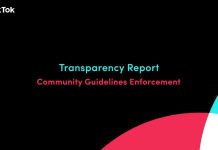A new methodology is needed by governments says global body for professional accountants
To mark International Women’s Day, ACCA (the Association of Chartered Certified Accountants) is urging more governments to adopt the use of Gender Responsive Budgeting (GRB) to ensure that women and men benefit equally from the economic recovery out of Covid-19, and to guarantee a stop to inequality.
According to the UN’s global COVID-19 Global Gender Response Tracker, while 164 countries have GRB in some form, just 25 – such as New Zealand and Trinidad and Tobago – have demonstrated an holistic approach by applying measures that span across unpaid care, violence against women and women’s economic security.
The global body for accountants and finance professionals says that governments need to rethink their economic recovery policies. To guide them, ACCA has issued a toolkit about how accountants can place GRB into their everyday roles and responsibilities.
ACCA’s call for action follows recent research published by McKinsey, which shows that although women account for 39% of global employment, they also account for 54% of total job losses as a result of the pandemic.
Helen Brand OBE, chief executive of ACCA says: ‘The evidence is clear – women have suffered disproportionately as a result of the pandemic and GRB can help ensure that these inequalities are considered to ensure a more inclusive recovery. To work effectively, GRB requires political commitment at the highest level, a sufficient allocation of resources and robust capacity development at all levels.’
ACCA highlights recent high-level examples of such political commitment – the COP 26 Presidency, which called for ‘developing and implementing gender-responsive climate policies’, and Canada’s 2018 law on Gender Budgeting and Indonesia’s No.9 2000 Presidential Instructions on Gender Mainstreaming which enshrine GRB in these country’s laws to help protect it from being influenced by political changes in commitment.
Helen Brand explains why using GRB is needed: ‘Pre-COVID-19 data from Standard & Poor, launched at the 2019 World Economic Forum, found that if men and women participated equally in the labour market, the US economy would be 8.7% larger, the French economy would be 17% larger and the Japanese economy would be 14% larger. So there is a strong economic impetus for GRB’s use. This is also about meeting the UN Sustainable Development Goals (SDGS) and especially SDG 5 – achieve gender equality and empower all women and girls – by 2030.’
For GRB to work, governments need to:
- collect and analyse sex-disaggregated data to identify where problems lie so policies can be targeted effectively
- ensure institutional capacity – offer staff training and development, with management buy-in so that women have decision-making roles and have an equal seat at the table
- have an ‘all-government approach’ with strong coordination between the Ministry of Finance and the relevant line ministries to ensure the process is carried out at each level
- engage with wider public institutions, such as Supreme Audit Institutions and the Legislature, to ensure the approach has been properly scrutinised and audited.
Sajjeed Aslam, head of ACCA Pakistan adds: ‘We believe that public sector finance professionals have a vital role to support governments and policymakers by providing them with the necessary data and tools to implement GRB effectively. This is ongoing work and it is good to see gender-specific policies aligned to Covid-19 recovery with the introduction of the Ehsaas Emergency Cash Program.’
Helen Brand concludes: ‘GRB can be applied in all sectors of the economy and society including transport, health, education, employment and many more; so the better the coordination between government departments, the more widely the practice can be used.
‘The role of the public sector finance professional can be seen in every stage of the cycle – from initial analysis and budget design to the invaluable role of auditing in the final stage. The accountancy profession can, and should, play a key role in ensuring policymakers commit to gender equality and use GRB as a tool of effective implementation.’



























